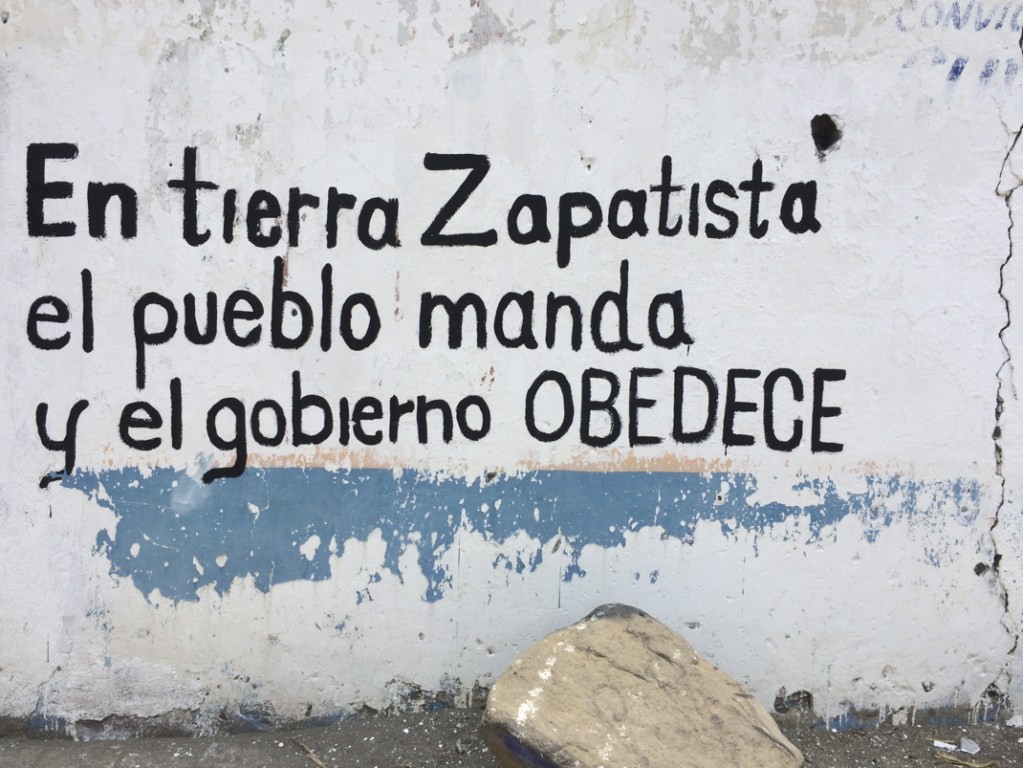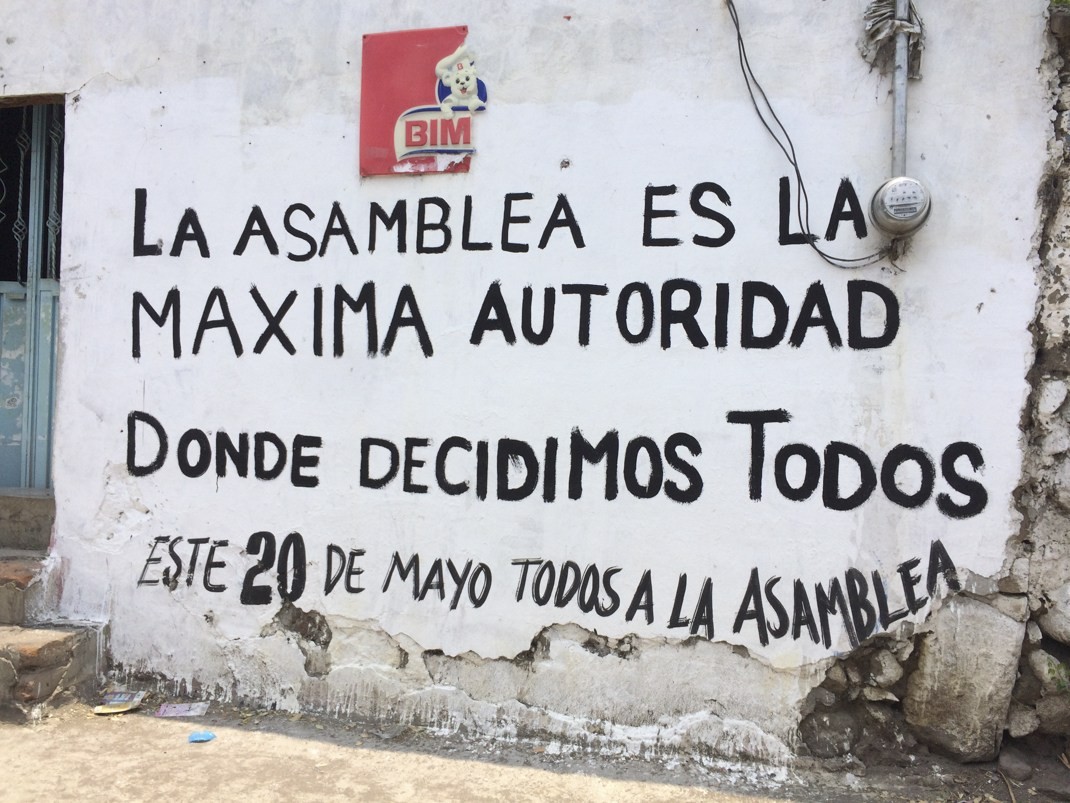Filed under: Indigenous, Mexico, Southern Mexico

On Tuesday, May 16, 2017, residents of Amilcingo, Morelos held a press conference to denounce interference in the elections for auxiliary municipal authorities by electoral authorities and the local government, controlled by the Institutional Revolutionary Party (PRI), as lacking respect for the traditional practices (usos y costumbres) of the indigenous community.
For the indigenous peoples who make up the municipality of Temoac – Amilcingo, Huazulco, Popotlán and Temoac – municipal autonomy and self-determination are linked to the social struggles that happened in the region in the 1970s, led by a young normalista teacher from Amilcingo, Vinh Flores Laureano, which resulted in the creation of the rural teaching school for women in Amilcingo, the Center for Technical Agricultural Studies 39 (Centro de Estudios Técnico Agropecuarios 39) in Temoac, and the Emiliano Zapata Farming Cooperative (Ejidos Union Emiliano Zapata). In 1976, before the economic and political rule that the PRI exerted over the municipal government, these towns decided to separate from the municipality of Zacualpan de Amilpas and to create the free municipality of Temoac in a traditional general assembly, which was officially recognized on March 17, 1977.
Over the years, parties and ballot elections began re-entering the municipality. Now the struggle of resistance and rebellion that Amilcingo has undertaken has led the community to return, more than a year ago, to the election of their authorities according to traditional practices in a general community assembly. However, the PRI mayor of the municipality of Temoac, Edith Cornejo Barreto, and the Morelos Institute for Electoral Processes and Citizen Participation (IMPEPAC), endorsed by the State Electoral Court (TEE), intend to impose conditions on the May 20 election of auxiliary municipal authorities, such as the use of voter credentials and the presence of the security forces in the town during the assembly, violating the self-determination and traditional practices of the indigenous community of Amilcingo. Eliezer Zamora, a resident of Amilcingo, said during the press conference:
“We want IMPEPAC’s respect, that they respect us as the indigenous community that we are; that the electoral court respects us as the indigenous community that we are, and we also want the Interior Ministry to respect us, not to try to send security forces, since in our naming of auxiliary municipal authorities we have never required IMPEPAC, the court, or the security forces. Whenever we have named authorities, we have done it according to our traditional practices.”
In Amilcingo, political parties have no credibility, so the people have decided that it is the community assembly that decides on the mode of election and the appointment of authorities and representatives. On March 5, the people of Amilcingo elected their auxiliary municipal authorities according to custom by community assembly, choosing a man and two women, with their respective alternates, to hold office for one year each. Before that, on February 29, a document with more than 700 signatures was delivered to IMPEPAC, which warned that the election would be held according traditional practices. However, the Temoac municipal government issued a call to hold the election by means of a ballot and votes on March 18th.
In response, the community of Amilcingo presented a dispute before the TEE, which ended up recognizing – after an anthropological survey conducted by the National Institute of Anthropology and History (INAH) – the right as indigenous people to choose authorities according to traditional practices in community assembly, by show of hands, without the intervention of the municipal authorities in Temoac, although they determined that Amilcingo would have to hold the election for auxiliary municipal authorities again.
Although the ruling gave the municipal government 20 business days to issue the call, the Temoac municipality did not do so until April 3rd, when they announced that the election would be on April 6 and would happen in the presence of the municipal police. During that time, the PRI mayor, Edith Cornejo, used the municipal structure to distribute support, programs and promises in exchange for votes for her group.
The anthropological survey by INAH, in addition to confirming the rights of self-determination of the indigenous people of Amilcingo, also showed the existence of a powerful group linked to the PRI and led by Humberto Sandoval, general secretary of the Cardenista Peasant Central, which has prevented the recognition of the community’s traditional practices for more than four years. Now that there is finally the possibility of carrying out the election, the community of Amilcingo asks for the guarantee that there will be no security forces or aggression.
The community only wants to exercise its self-determination to choose its authorities in peace, but the municipal government is imposing the police upon the election to defend their own interests, say the inhabitants of Amilcingo. Never before has this been seen in the community, never before has it been necessary to use security forces in elections carried out by traditional practices. Residents comment that the police will only provoke, that they want to involve security forces just to intimidate. For this reason, the community demanded conditions for the general community assembly to be held on Saturday, May 20th at 9:00 a.m., with observers from both the United Nations and The National Human Rights Commission, in addition to being broadcast live by the Morelos-Puebla-Tlaxcala Peoples Front, Amiltzinko Community Radio and other independent media.






